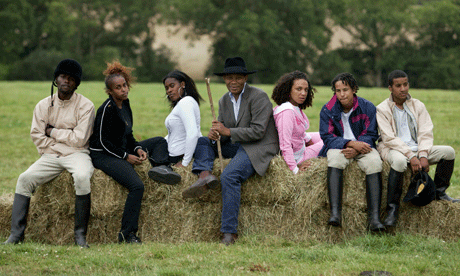
All the World Over
a travel documentary series like no other
Each hour-long episode of All the World Over profiles one city, exploring the restaurants, music venues, historic and literary landmarks that have grown from the African communities that have been in that city for many years and, in many cases, many centuries. All the World Over is not solely about transplanted African immigrants but highlights hybrid cultures blending African traditions from the old country with the European, Asian, Australian, South American and North American traditions of the new country by second and third generation Afro-Europeans and Afro-Asians.
Guided by vibrant and inquisitive host, Nia Renée Hill, the audience meets the chefs, musicians, artists, historians and writers who hail from the hybrid cultures and who in their own work expand, mix and evolve the cultures of their dual heritage.
Our Vision
About the series
After exploring the sights, tastes, music, literature and history, All the World Over returns the viewer to his living room couch with a new perspective on the myriad aspects of being black, and renewed vigor toward shedding the limiting, debilitating stereotypes and being empowered by the boundlessness of all that is encompassed within what it means to be black.
Challenging the definition of “blackness” through the excitement and amazement of traveling the world, All the World Over is a travel documentary series like no other, exploring the vast array of black music, food, literature and art throughout the seven continents.
All the World Over uncovers the long history of global black communities dating as far back as 14th century East African merchants, soldiers and slaves in South Asia, and Cape Verdean fishermen who immigrated to Wales three hundred years ago and profiles figures such as the 18th Century Russian Major-General Ibrahim Petrovich Gannibal, an Ethiopian immigrant and great-grandfather of writer Alexander Pushkin, and Afro-Polish violinist George Bridgetower who played with the British Royal Philharmonic and to whom Beethoven originally dedicated his Violin Sonata No. 9, weaving in the history of black people’s long and international presence.
Each episode concludes with the end of the trip and the host’s reflections on the travels as she reassesses the stereotypes and pre-conceived notions of blackness, arriving at new and more open perspectives about what it means to be black.
Travel over Distance & Time






